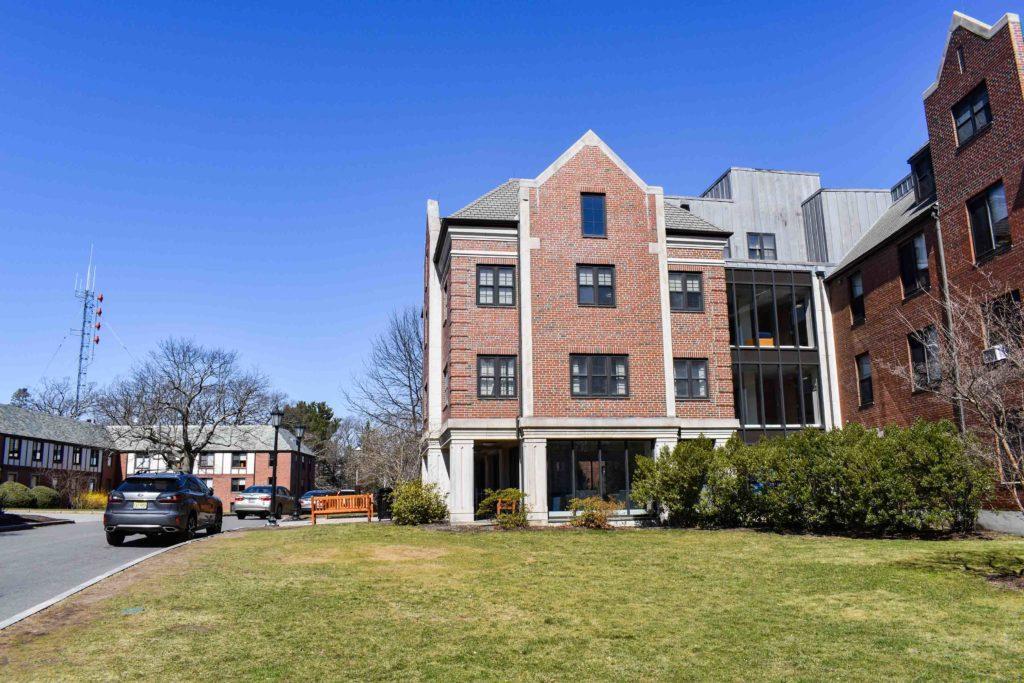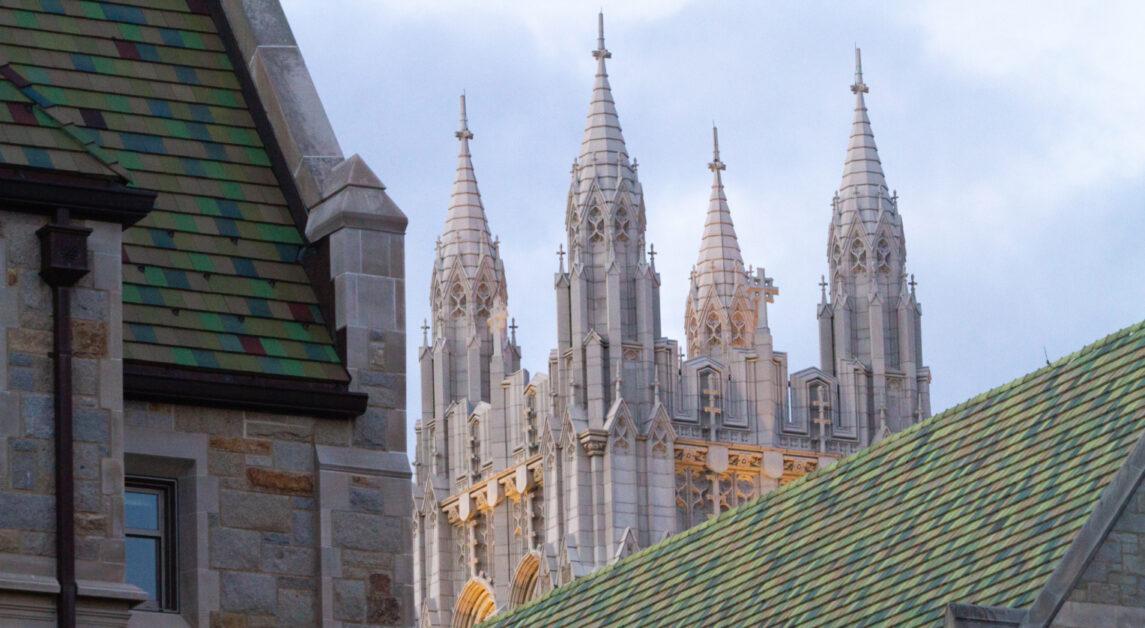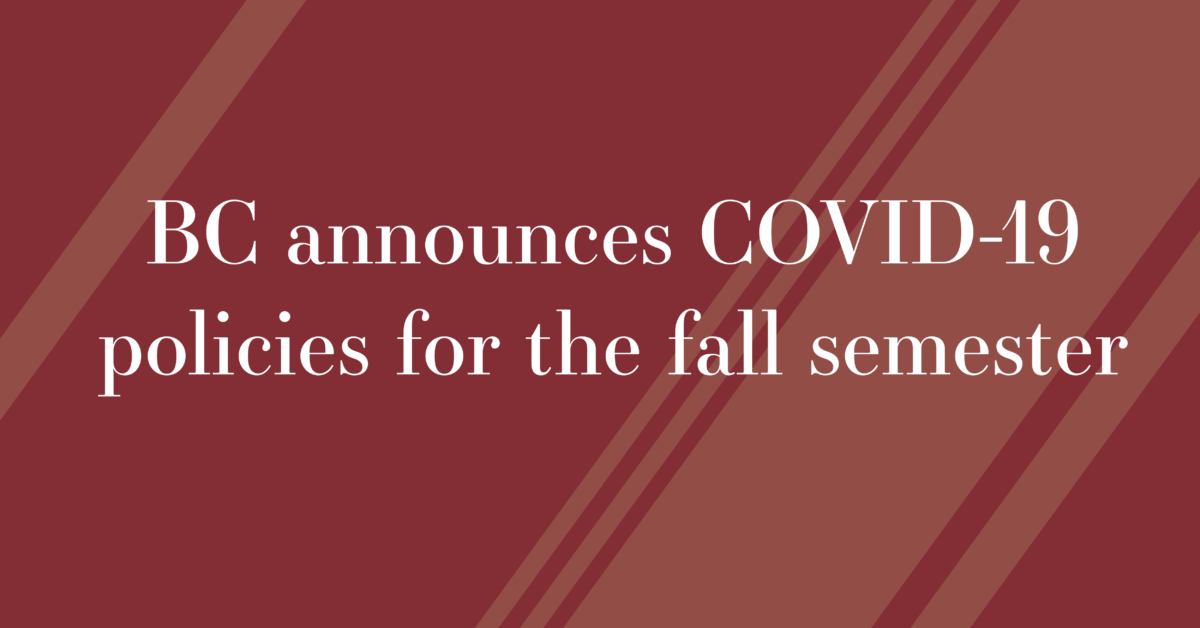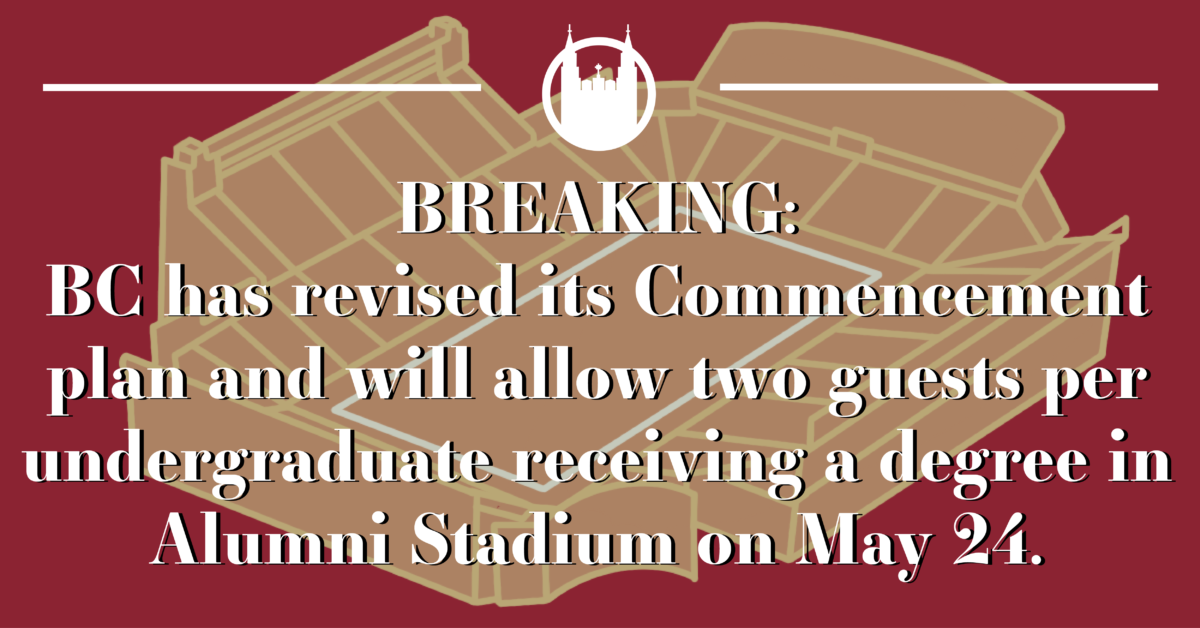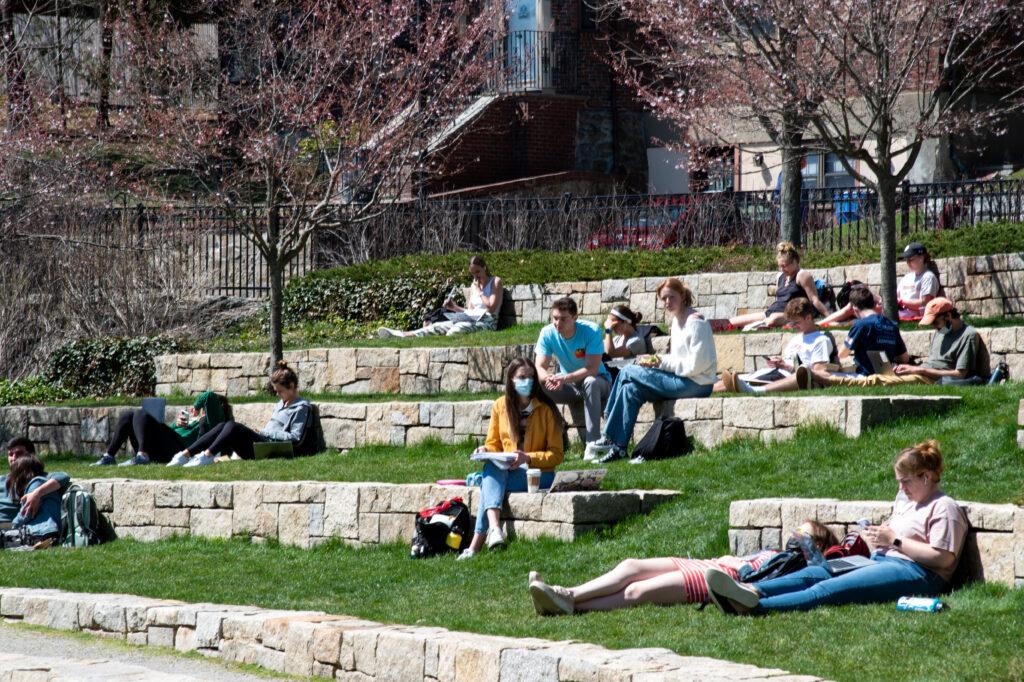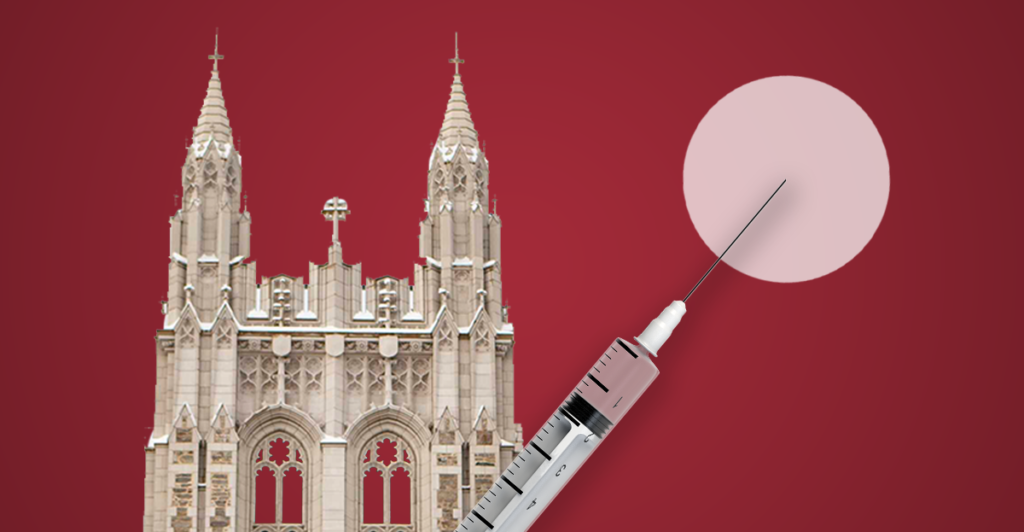Boston College released a letter on Monday providing updates on how the University is preparing for instruction and housing in the fall. The letter said the University will treat students who are living in shared rooms, apartments, or suites as “family units”—it will not require them to wear masks in their shared living spaces, but it will encourage them to physically distance from the other occupants as much as possible.
The University will no longer be housing students in “forced triples,” or traditional freshman doubles that house three students.
The letter, signed by Executive Vice President Michael Lochhead and Provost and Dean of Faculties David Quigley, is one in a series of weekly updates the University is planning on sending out every Monday until the beginning of the fall semester.
BC will be enacting stricter visitation policies, and it will reduce capacity in the common areas within residence halls, the letter said.
The University has obtained additional beds close to campus to accommodate students who planned to study abroad this fall, though the letter did not specify where these additional beds are located. BC announced the cancellation of all fall abroad programs on June 12.
BC is still finalizing its plans for housing students who will need to isolate after testing positive for COVID-19 or quarantine after coming into close contact with someone who has, according to the letter.
“Boston College has leased space at an off-campus location and is planning to utilize other University facilities for quarantine and isolation housing,” reads a page on the University’s reopening site. “Any locations that end up being utilized will be staffed with Residential Life professionals and supported by Dining Services and University Health Services.”
Outgoing Director of University Health Services Tom Nary and his successor, Douglas Comeau, told The Heights they do not currently know which University or off-campus facilities will be used for quarantine and isolation housing. John Tommaney, director of Emergency Management, could not immediately be reached for comment.
During the spring semester, the University housed students who needed to quarantine or isolate in 2150 Commonwealth Ave.
The University will also be extending the period during which students can move into residence halls, restricting the number of people who can help with move-in, and asking students to limit what they bring with them to campus. The University will use an appointment system to designate move-in times, which will be staggered for each residence hall, the letter said.
The Office of Residential Life and University Custodial Services will also clean common areas and shared restrooms in traditional residence halls multiple times per day in order to minimize the spread of the virus, according to the update.
The letter said that as Massachusetts begins moving into Phase 2, Step 2 of its reopening plan on Monday, offices will be allowed to reach 50 percent occupancy, but the University is still encouraging employees to work from home if they are able to do so.
BC offices were previously allowed to operate at 25 percent capacity in accordance with Phase 1 of the plan. Workers “less able” to work from home were the first to return to campus, according to BC’s Guide for Returning to the Workplace.
The University will release additional information about class scheduling and classroom capacity available in the coming weeks, the letter said. The University is revising classroom assignments and expects to finalize them in late July.
The letter also detailed ways that University employees are preparing to offer BC’s “full curriculum” in the fall. The Center for Teaching Excellence has developed a summer program to prepare instructors for a wide range of teaching methods and approaches, and the Center for Digital Innovation in Learning is working with faculty on asynchronous learning practices, the letter said.
University Libraries and Information Technology Services are working together with BC’s schools to ensure that faculty and students have access to the software, hardware, and other materials they need for “high-quality” teaching and learning, according to the letter.
“Colleagues across campus are working during the next two months to ensure that classrooms and the campus as a whole are prepared for the start of classes in late August,” the letter said.
The University will equip 54 classrooms with cameras and audio recording equipment over the summer, bringing the total number of instructional spaces where lectures can be broadcast and recorded to 100.
Julia Kiersznowski contributed to this report.

